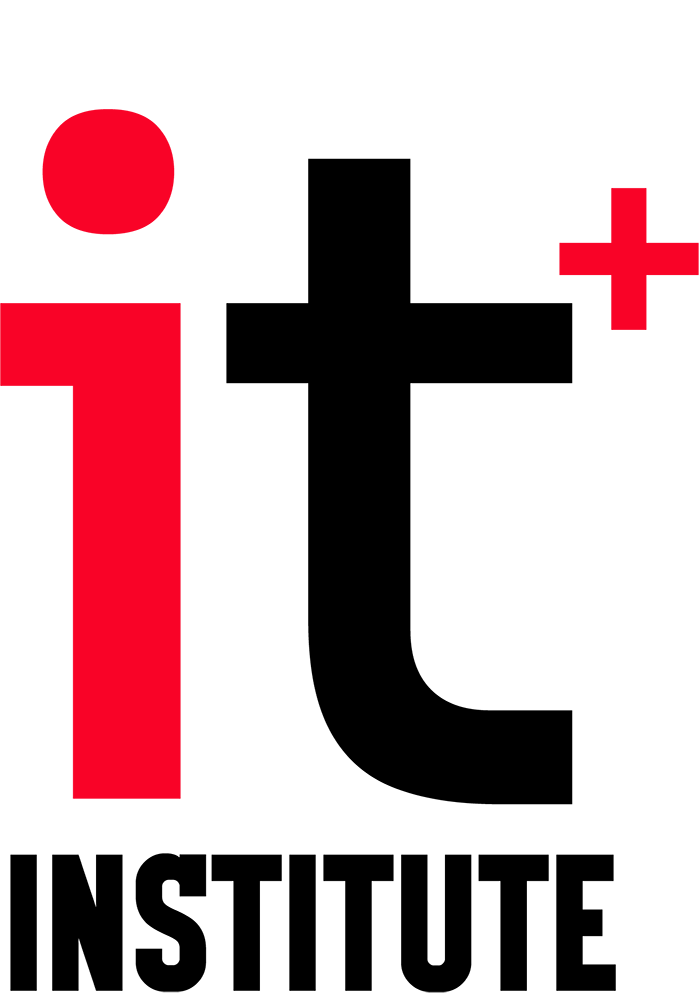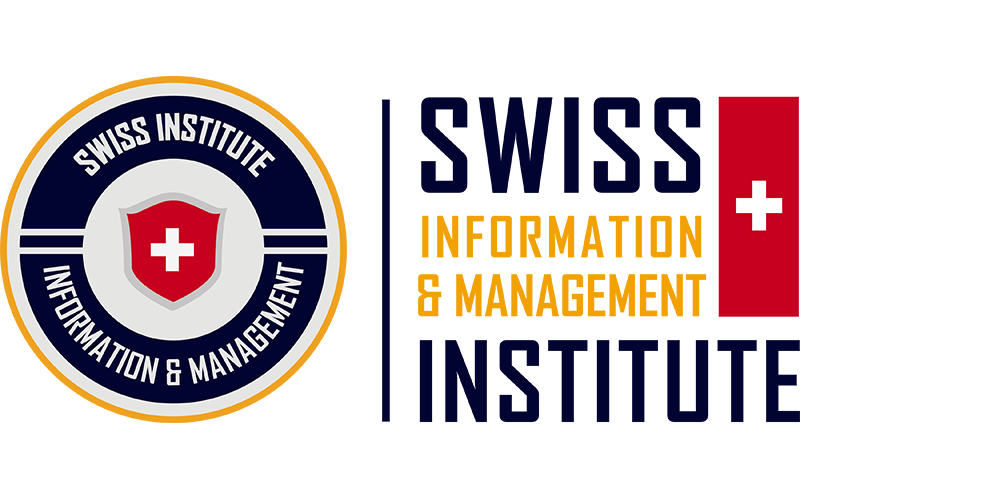


Accreditation
An opportunity to elevate the learning experience for our students
IT Institute perspectives on the quality of training
01Accreditation should be present at all levels.
02Prioritize the student experience: Direct efforts toward optimizing the student experience.
03Rankings are not prioritized: In our Swiss education, the culture does not emphasize rankings but quality.
A member of SIMI Swiss
Accreditation FAQs
The Essence of SIMI Academic Programs
The Swiss Information and Management Institute (SIMI Swiss) is a recognized and globally acclaimed Private Higher Education Institution, holding accreditation at institutional, school, and program levels.
SIM Institute is licensed by the Zug Canton authority as a private higher education institute. Being a private institution in Switzerland, SIM Institute issues private degrees. Not being part of Switzerland's federal and public higher education sector, it operates independently and is not regulated under the Federal Act of 30 September 2011 on the Funding and Coordination of the Higher Education Sector (HEdA), SR 414.11.
Our higher education programs differ from the Swiss National Curricula and Programs leading to Swiss Government university qualifications, which fall under the Swiss Public Higher Education sector.
SIMI Swiss is a private, globally accredited higher education institute in Switzerland and is not affiliated with the Swiss public education system or the Swiss government. The qualification issued by SIMI Swiss is a Private Degree, distinct from federal degrees or degrees awarded by public universities in Switzerland.
What is accreditation?
Accreditation serves as a rigorous quality assurance process, verifying that colleges, universities, and educational institutions, along with their programs, adhere to stringent and recognized service and operational standards. Acquiring an accredited degree is crucial for attaining the career success you rightfully deserve.
Through this process, external agencies assess a school's programs, guaranteeing adherence to relevant academic standards. Lack of accreditation makes it difficult for employers to ascertain the legitimacy and reputation of your diploma or degree, emphasizing the importance of this recognition from reputable institutions.
What does institutional-level accreditation at SIMI Swiss entail?
Institutional accreditation essentially grants a license to operate, gauging compliance with predetermined standards like staff qualifications, research activities, student intake, and learning resources. It also considers the institution's potential to produce graduates meeting academic and professional competence standards (source: "The Power of Accreditation: Views of Academics" by Professor Lee Harvey, Centre for Research and Evaluation, Sheffield Hallam University, ENQA Workshop Reports, 2004).
With official approval, students at the Swiss Information and Management Institute (SIMI Swiss) can trust the institution's compliance with commercial quality and integrity standards. SIMI Swiss recognized globally, holds accreditation at institutional, school, and program levels. Licensed by the Zug Canton authority, SIM Institute is fully accredited by the Higher Education Accreditation Division and is a member of SVEB Switzerland, with its programs recognized by Ofqual UK Gov Awarding bodies.
What does program-level accreditation mean at SIM Institute?
Program or programmatic accreditation, also referred to as specialized or professional accreditation, is tailored for specific departments, programs, schools, or colleges within an already accredited university or institute.
At SIMI Swiss, we lead in adhering to international higher education standards. As a reputable and globally acclaimed Institute of Higher Education, we've secured accreditation at institutional, school, and program levels. All our academic programs align seamlessly with the European Qualifications Framework (EQF) and National Quality Framework (NQF). This ensures that every SIMI Swiss program and qualification receives full accreditation, guaranteeing our graduates open access to employment and lifelong learning.
What does accreditation and mutual recognition entail for SIM's strategic partners?
SIMI Swiss engages in close collaboration with meticulously chosen partner universities globally. The aim is to accredit and mutually recognize degrees offered by these strategic partners. This collaboration proves advantageous for SIMI students, potentially enabling them to attain multiple academic credentials simultaneously.
What advantages do learners gain from the accreditation and mutual recognition of SIMI's strategic partners?
- Attaining Multiple International Credentials
- Flexibility in Choosing Learning Methods and Locations
- Recognition of Prior Learning
- International Acknowledgment of Learning, including the United Kingdom (SIM Institute programs are fully recognized and endorsed by OTHM and ATHE, accredited by Ofqual), the European Union, Asia, South Africa, and Australia, facilitated through mutual recognition via the National Qualification Framework (NQF).
- Potential to Earn a Diploma or Degree for Each Academic Year, enabling students to secure employment right after completing the first year with SIM Institute.
What advantages do Employers gain from the accreditation and mutual recognition of strategic partners?
- Assurance that the curriculum encompasses essential skills and knowledge required for contemporary jobs.
- Clear identification of the professional and academic level of candidates/employees.
- Candidates/Employees with practical orientation and exposure to career-based training and assessment.
- Industry-ready candidates/employees demonstrating high levels of productivity and fitness for the intended purpose.
The IT Institute of Switzerland
Accredited
Dual Degree
Programs
Levels
We communicate transparently and only commit to what is within our authority.
Policies & Liability exemption
Learners must read and understand carefully
General Information
As an institution subject to Zug canton regulations, independent accreditation systems, and relevant European Union regulations, The Swiss Information and Management Institute (hereinafter referred to as SIMI Swiss) would like to make public the terms, regulations, policies, and liability disclaimers outlined in this and related sections.
During the operation of SIMI Swiss, regulations in Switzerland, Zug Canton, and the European Union, along with related guidelines, may undergo changes. Consequently, SIMI Swiss reserves the right to amend or supplement policies while still adhering to agreements signed with students, partners, government agencies, accreditation bodies, international accreditation agencies, and relevant entities.
We strongly advise students and other stakeholders to thoroughly review and understand these terms before engaging in studies, collaborations, or interactions with SIMI Swiss. This ensures transparency of information, prevents misinterpretation or intentional distortion, maintains an anti-transparent communication process, promotes fair competition, and unequivocally safeguards the rights of all parties involved.
In addition to ensuring information transparency, we are steadfast in our adherence to Switzerland and European Union regulations, including, but not limited to, those that prohibit misleading communication and unfair competition practices.
If you have any questions or come across activities that may harm students, other stakeholders, or SIMI Swiss, please contact the SIMI’s legal department at legal@simiswiss.ch.
All SIMI Swiss students and partners are required to sign and/or read all the commitments and agreements. Typically, these documents include terms that are publicly available as well as detailed terms specific to each group. Please read these terms carefully and reach out to a SIMI Swiss representative if you have any questions. The terms of the agreements will automatically apply upon signing and/or confirmation by the parties, indicating their full understanding of the terms.
Who could study with SIMI Swiss
Students at SIMI Swiss can be individuals with sufficient academic ability who meet the entrance criteria for programs announced by the HEI.
As a higher education provider institution, we thoroughly assist students in becoming registered at SIMI Swiss, regardless of diverse backgrounds that include ethnicity, place of origin, circumstances, or religious beliefs.
Students who register with SIMI Swiss must adhere to the guidelines outlined in the student handbook, which includes the requirement to provide accurate information. If candidates and students violate the principle of honesty, SIMI Swiss reserves the right to refuse admission, cancel student status, and nullify cumulative results. In this case, there will be no reimbursement for fees and related expenses. The infringer must compensate SIMI Swiss and related parties for any necessary losses.
SIMI Swiss license and Programs
SIMI Swiss adheres to the private Higher Education Institution (HEI) requirements established by the Zug canton authority. Although international accreditation is not obligatory in Switzerland, SIMI Swiss actively advocates for it to ensure the professionalism of the training process and to facilitate continuous improvement. Accreditations will be regularly updated in multiple languages on the official SIMI Swiss website.
As a private higher education institution, SIMI Swiss provides students with market-oriented education, study flexibility, and alignment with market needs. The programs, delivered in English, cater to global students and operate independently of Swiss government regulations and frameworks. Awards from SIMI Swiss are issued by the institution and are not affiliated with Switzerland's Federal qualifications or the public higher education system in the country.
The SIMI Swiss program aligns with the European competency framework and EU higher education guidelines. While there are official documents regarding the similarity of regional and national competency frameworks, the recognition and acceptance of qualifications in accordance with international practice are determined by receiving organizations and are subject to each country’s specific regulations. Consequently, SIMI Swiss does not make any claims beyond its jurisdiction, including the recognition and acceptance of degrees by receiving organizations, as well as by governments and other relevant parties. SIMI Swiss and its international and local partners do not support this process for any purpose or country.
Content published and Training scope
SIMI Swiss consistently updates its information and lectures to remain responsive and adaptable to changes in the workplace and related regulations.
The content on the website, in publications, emails, and other media is accurate at the time of communication but is subject to change without prior notice.
The training scope and program may change during the process of rolling out the program, but it must still meet the competency framework and the assessment criteria of the independent accrediting unit. If the original agreement is modified, SIMI Swiss will notify students of any changes, new programs, and alternative learning paths, as applicable.
In cases of changing and severely affected economic and political situations, as well as force majeure events, the training method is subject to adjustments. During such circumstances, the school will inform and consult with the student and revise the student’s initial training plan accordingly.
Third-party learning materials are either purchased, rented, or licensed by SIMI Swiss. Some learning materials are compiled by SIMI Swiss lecturers. While all these materials have been evaluated and approved by the SIMI Swiss Academic Board, they may occasionally contain inappropriate content when applied to certain international students. In such instances, SIMI Swiss will promptly modify the training scope if it deems the impact significant, but it cannot be held responsible, either solely or jointly, for any damages resulting from the training scope.
Students and stakeholders may only use the training content for personal learning and research purposes, and it may not be copied in any form, commercial or non-commercial. Copyright-related content will be stated more clearly in the Copyright Policy section.
Academic Credits
Credit is the acknowledgment of the amount and duration of study required to acquire knowledge.
SIMI Swiss employs the ECTS (European Credit Transfer and Accumulation System) for its credit system. Some SIMI Swiss programs also utilize the UK RQF credit system due to our partnership with the British education system.
The Academic Board at SIMI Swiss is responsible for internal credit recognition. It’s important to note that while SIMI Swiss and our partners perform this recognition, we cannot guarantee that these credits will also be recognized by other universities or entities not affiliated with SIMI Swiss.
If you intend to transfer your SIMI Swiss credits to another educational institution or system, we recommend consulting with the destination university or other entity first. While SIMI Swiss will offer assistance within our capabilities, we do not intervene in the admissions processes of other universities. It’s crucial to understand that SIMI Swiss cannot commit to guaranteed recognition when transferring to another institution.
Recognition of Academic Progress and Qualifications
Students will be recognized for their academic progress and awarded a degree from SIMI Swiss upon completing coursework and complying with our requirements and obligations, including academic discipline and integrity. In the case of students who pursue dual degrees or programs with our partners, they may also receive additional diplomas or certifications from these institutions.
It’s important to note that every country, institution, and region has specific rules and criteria for recognizing academic progress and qualifications. The recognition and acceptance of degrees are subjective decisions made by the relevant agencies, government authorities, or in accordance with regional policies, as per international norms. While SIMI Swiss’s degrees are accredited by an independent accreditor, align with competency frameworks, and are subject to internal and external assessments, this does not automatically guarantee recognition or acceptance. SIMI Swiss and its partners do not provide a guarantee of recognition in any country for any purpose, including employment, teaching, research supervision, and any other purposes.
Information Assurance, Security and GDPR
SIMI Swiss strives to protect personal information by strictly adhering to regulations, ensuring information safety and security, and implementing the EU’s GDPR (General Data Protection Regulation).
Apart from collecting information necessary for program implementation, training, and quality improvement purposes, SIMI Swiss does not gather information from students or partners. Any disclosure to third parties, other than for the abovementioned purposes, will only occur in response to orders/requests from competent authorities.
In the event of information security breaches resulting from unauthorized access, SIMI Swiss collaborates with relevant authorities and parties to resolve such issues. SIMI Swiss disclaims liability for intrusions beyond our control.
Fairness, Liberation, and Learning Freedom
SIMI Swiss follows fairness rules when admitting students, commenting on results, and reviewing and allocating scholarships, funding, and budgets to students and stakeholders. It does so without regard for gender, ethnicity, race, religion, and political beliefs.
Because SIMI Swiss is a private independent HEI, its training system and program structure allow students to freely choose their major, a study plan, and quickly transfer to another university when a change is desired.
SIMI Swiss abides by human rights regulations, including protecting and promoting the human right to education. Students at SIMI Swiss can freely choose their major, a study plan, and easily switch to another major when they want a change.
Copyright Policy
The intellectual property rights of content providers, instructors, students, and other third parties are respected by SIMI Swiss. Respect for intellectual property rights is likewise expected of students and users of our educational system.
When studying or collaborating with SIMI Swiss, students, and other stakeholders must follow signed or unsigned regulations that follow international copyright practices.
All information published by SIMI Swiss and its partners, including learning materials, documents, forms, minutes, and other contents published officially or unofficially, internally or externally, are the property of SIMI Swiss. Students, partners, and other stakeholders must not copy, use, or reuse material for purposes other than learning and personal research. Outside of the above copyright agreement, all reproduction activities for either commercial or non-commercial purposes are copyright infringements against SIMI Swiss.
Copyright infringement is one of the most serious infringements, according to SIMI Swiss. SIMI Swiss has the authority and reserves the right to terminate a student’s status, annul the student’s results, degrees, and online account if it is discovered that the student infringes on intellectual property rights. This policy remains in effect even after the learning process has been completed.
In the event that a student or another party violates the copyright, resulting in damages (including actual and intended or implied damages), SIMI Swiss fully supports the investigation process but is not responsible for any material, financial, or liability disclaimer if it is determined that the infringement of copyright is beyond SIMI Swiss’s scope of influence.
Faulty Communication and Unfair Competition Prevention
Protecting the reputations of students, partners, and SIMI Swiss is a top priority for a HEI that accepts students from all over the world. Transparency of information, anti-false communication, and anti-unfair competition policies are all mandatory regulations that must be followed in accordance with EU regulations and conventions as well as international conventions.
SIMI Swiss coordinates with members in other countries, consular offices in SIMI Swiss partner countries, and SIMI Swiss member universities to assist in ensuring the legitimate interests of students, SIMI Swiss legal entities, SIMI Swiss partners, and SIMI Swiss itself.
When there are media-related issues and the information stated in the press release (announcement/article) is false and/or harms the university’s reputation, interests, and related interests, SIMI Swiss, in collaboration with universities and global partners, and the Ministry of Education, Consular Affairs, and the legal department will implement a process to prevent faulty communication, as detailed below. Please remember that the content published here is only a small step of the process and is only available in countries and territories where SIMI Swiss accepts its students.
False communication behaviors include the following:
Promoting and spreading misleading information in any way:
- The SIMI Swiss’s legitimacy;
- The SIMI Swiss’s international accreditation and recognition;
- Legitimacy and the right to take part in education regardless of one’s age, gender, socioeconomic class, or location;
- Information and photos that are the assets of the SIMI Swiss and its partners, as well as other actions that may influence or hurt the institution’s reputation, honor, and interests as well as those of its partners and students worldwide;
- Communication actions that, whether purposefully or accidentally, lead to misunderstandings or are only partially accurate, display unfair competition, are not true to their nature;
- Content that violates the public disclosure of the disclaimer issued by SIMI Swiss and its partners.
False communication management procedures (applicable in several countries):
Creating a bailiff and a disposal squad
The university develops a team (AKA a bailiff and a disposal squad) to handle the incident, gathers all relevant information, collects evidence, and collaborates with interested parties to readily handle it in three steps as follows:
Step 1: Alert the parties involved and related parties.
Inform the involved parties of the violation, as well as the diplomatic mission in the country where the university is registered to operate and the representative of the host country’s diplomatic mission in the country where SIMI Swiss is registered to operate.
Step 2: Request that the responsible party make good the damage
Issue an official notice and request that the involved party make good the damage by providing (1) a description of the violating behavior; (2) evidence; (3) damage estimates; and (4) the terms have been violated in accordance with the applicable laws, regulations, conventions, and so on to which the SIMI Swiss has signed and/or the national government of the country in which the incident occurred.
Step 3: Keep a close eye on the remediation process.
If the faulty communication behavior is not completely made good, we will monitor the remediation process of the responsible party in concern and take other firm and strict measures.
Amendment Rights for the Terms
SIMI Swiss hereby reserves the unilateral right to amend these terms at any time, with such modifications becoming immediately effective.
Terms agreed to with related parties will remain in effect. If the signed agreements are changed, they will only take effect if deemed more favorable to SIMI Swiss than the existing agreement.
The new terms will take effect immediately for newly formed agreements.
Tuition Fee Policy
The tuition fee policy is outlined in the student handbook, which is distributed to students prior to beginning the program. The tuition policy is subject to change at any time. SIMI Swiss reserves the right to refuse or grant a scholarship.
Tuition fees, accompanying services, learning materials, and costs for the learning process, excluding textbooks, are all included in training costs (if purchased from other suppliers). Application fees, consular legalization fees, notarization fees, library fees, and other expenses incurred in relation to the specified life-long learning are not included in training costs. The student handbook will outline any additional fees. Students have the option to choose or decline services. Students are not required or obligated to use optional services if they are part of an optional cost at SIMI Swiss.
Students should carefully read the student handbook’s refund policy. SIMI Swiss provides scholarships and tuition grants on a fair, non-discriminatory basis; however, SIMI Swiss reserves the right to decide whether or not to grant scholarships and financial support. The refusal, if any, is made by SIMI Swiss. SIMI Swiss may or may not be required to explain the reasons for the scholarship denial.
Tuition fees are only collected by SIMI Swiss representatives in several countries and returned to SIMI Swiss. SIMI Swiss is committed to providing complete tuition fee information, not collecting anything not listed, and not forcing students to pay optional fees.
Tuition Refund Policy
Tuition reimbursement policies are implemented in accordance with SIMI Swiss regulations, as outlined in the student handbook, and in accordance with the relevant guidelines. Students are always given information before enrolling and are made aware of the tuition refund policy before enrolling and after being accepted by SIMI Swiss.
The Tuition Refund Policies detail the types of fees that are refundable or non-refundable, as well as the reason and the proportion of refund (if any). The following are some notes on the tuition refund policy:
The registration fee will not be refunded whether or not the student is admitted to the program.
With regard to the first fee payment:
- Tuition for the first session will be fully refunded after two weeks from the date the first course begins.
- The tuition fee for the first period will be refunded 75% before the first week of the program’s first course.
- Tuition fees will be fully refunded after two weeks from the date the first course begins.
- Tuition for the first session will be refunded at a 25% discount from the first to the fourth week after the first course opens.
- After the first course has been open for four weeks, tuition for the first session will not be refunded.
With regard to the following fee payments: The tuition fee of the next payment will be refunded based on the payment schedule milestone announced by the school, with the following details:
- Tuition fees for the following payments will be refunded in full after one week of payment, according to the announced payment schedule.
- Tuition fees for the following payments will be refunded at a 75% rate after two weeks from the payment date, according to the payment schedule announced.
- Tuition fees for the following payments will be refunded at a 50% rate after three weeks from the payment date, according to the payment schedule announced.
- Tuition fees for the following payments will be refunded at a 75% rate after four weeks from the payment date, according to the payment schedule announced.
- Tuition fees for the following payments will not be refunded after five weeks from the payment date according to the announced payment schedule.
Candidates paying the full tuition fee are eligible for a one-time reduction. Fee refunds for one-time payments will be handled as follows:
- Tuition fees will be refunded in full within two weeks of the first course beginning.
- 75% of the tuition fee will be refunded before the first week of the program’s first course.
- Upon the first course opening, the tuition fee will be refunded at a 50% rate from week one to week two.
- Tuition will be refunded at a 25% rate from the first to the fourth week after the course is opened.
- After the first course has been open for four weeks, tuition fees will not be refunded.
The time frame for refunds will be determined according to when the student confirms the withdrawal in writing.





























